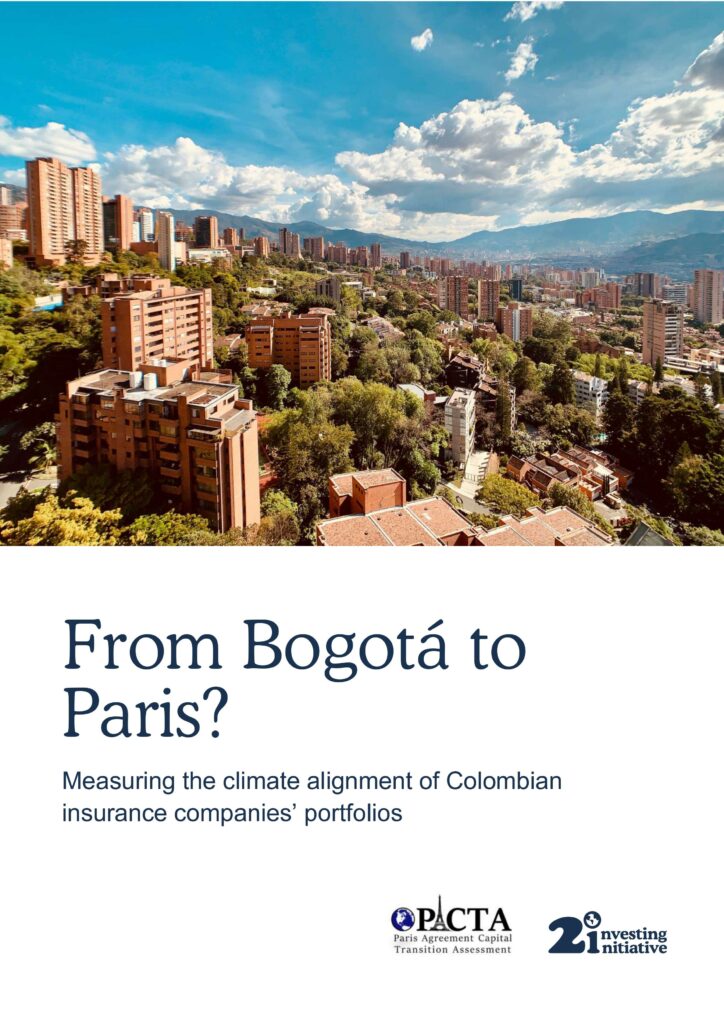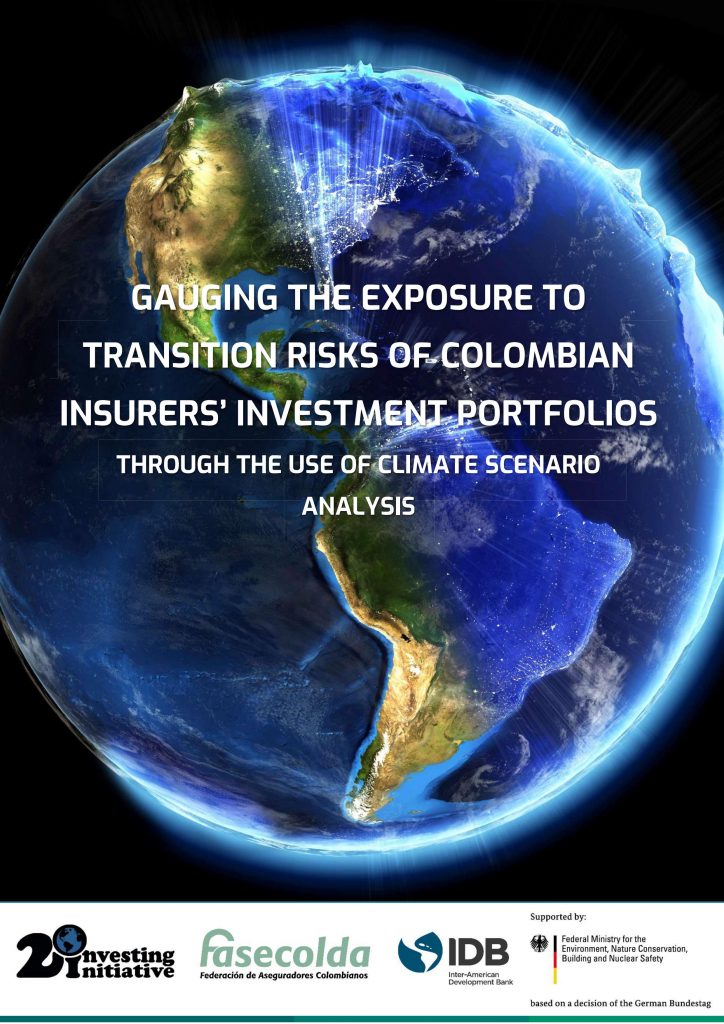The goal of this report is to help Colombian insurers better integrate climate considerations into their decision-making processes, as well as understand their exposure to risks associated with the climate transition. It follows a pioneer study carried out by 2° Investing Initiative (2DII) and the Colombian insurance industry association (Fasecolda) in 2019, which at the time was the first exercise of its kind in Latin America and the second in the world with an industry association. As with the first study, Fasecolda supported this project from the beginning and played a key role in raising awareness in the sector about the importance of participating in this type of analysis.
This report is the latest in PACTA Coordinated Projects, in which 2° Investing Initiative (2DII) works with governments, supervisors, and industry associations to assess national financial sector alignment with climate goals. So far, 2DII has worked with over 16 countries to carry out these assessments, covering more than €11 trillion in assets and over 2,600 financial institutions, in both developed and emerging markets.
To carry out the study, 2DII applied the Paris Agreement Capital Transition Assessment (PACTA) portfolio analysis methodology, and for the first time, a stress testing methodology. We focused on the investment portfolios of 20 Colombian insurance companies that participated voluntarily in this analysis (worth about USD 8.7 billion total as of 31 December 2020). The analysis focused on two types of assets: the listed equity investments (1.3% of the total portfolio) and corporate bond investments (27.6% of the total portfolio).
Key findings:
- Colombian insurance companies’ exposure to transition risks is mainly concentrated in power, oil and gas, and cement sectors.
- The five-year forward-looking production plans of investee companies in the main climate-relevant sectors are not fully aligned with a <2°C scenario.
- The stress-testing results show that the net value loss for both portfolios would be mainly driven by the fossil fuel technologies, especially by investments in oil production companies.
Based on these findings, we recommend insurance companies in Colombia to continue strengthening their capacity to assess climate-related risks exposure and to integrate climate change considerations into their decision-making strategies.
About our funders: This study is part of the project “Preparing the public and financial sector for Climate transition risk: Capacity building and call to action,” financed by UK PACT Colombia and led by Universidad de Los Andes in consortium with WTW and 2DII.






